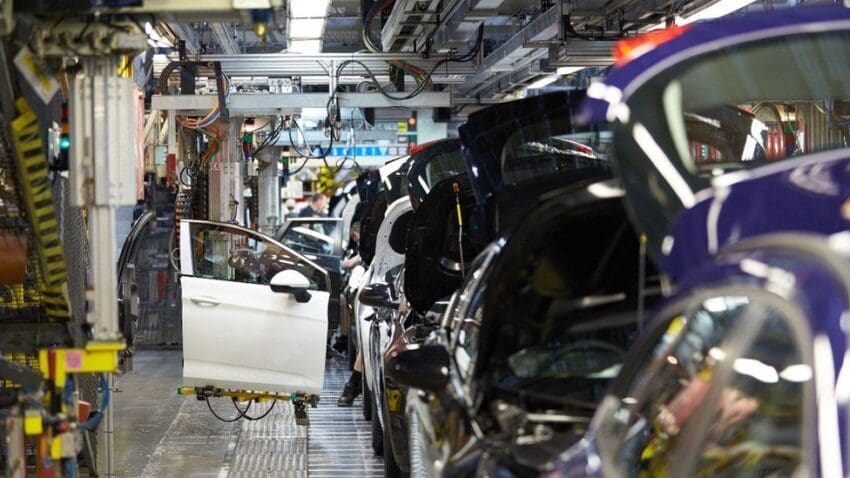Stellantis, Vauxhall’s parent company, faces a pivotal decision regarding its UK factories as emission regulation pressures mount.
The looming restructures in the UK automotive sector are driven by the government’s aggressive targets for electric vehicle sales.
The Impact of Regulatory Pressures on Stellantis
Stellantis, the parent company of Vauxhall, finds itself at a critical juncture regarding the future of its UK operations amid stringent emissions regulations. The Zero Emission Vehicle (ZEV) mandate poses significant challenges to the company’s production strategies. Under this regulation, manufacturers are compelled to ensure that 22% of their car sales are electric, with the figure set to rise until 2030. Failure to meet these targets entails fines of £15,000 per non-compliant vehicle. This financial burden is substantial, prompting Stellantis to reassess its UK plant operations.
Carlos Tavares, Stellantis CEO, has publicly expressed concerns about the current regulations. In a recent interview, he highlighted that the rules necessitate manufacturers to push more electric vehicles (EVs) into the market than what the current consumer demand justifies. According to Tavares, this scenario forces manufacturers to offer substantial price reductions to incentivise purchases. The stark contrast in consumer demand versus government mandates underscores a pressing need for regulatory adjustments that align more closely with market realities.
Current Market Trends in Electric Vehicle Adoption
In the face of regulatory pressure, the demand for electric vehicles has shown mixed results. Notably, the sales of EVs surged by 25% in September, but this growth was largely propelled by fleet operators rather than individual consumers. Fleet sales continue to dominate the market, indicating that while corporations are adapting to regulatory changes, private consumers remain hesitant.
Despite aggressive pricing strategies, individual sales of EVs increased by only 3.7% year-on-year. This muted growth signal highlights a critical challenge for manufacturers: incentivising private consumers to transition to electric vehicles. The disparity between fleet and individual sales is a stark reminder that more efforts are needed to make EVs appealing to the broader public.
Stellantis’ Strategic Considerations for UK Plants
With the backdrop of regulatory challenges and market trends, Stellantis must carefully evaluate its strategic options concerning its Ellesmere Port and Luton facilities.
These plants are integral to Stellantis’ UK operations, producing electric cars and vans while employing over 1,000 workers. The decision on their future hinges on several factors, including regulatory compliance costs and market conditions.
Carlos Tavares has indicated that a decision regarding these plants will be made imminently. The urgency of this decision is underscored by the potential impact on the local economy and the company’s overall manufacturing strategy in the UK.
Government’s Role in Supporting EV Transition
Given the regulatory and market dynamics, the role of the UK government is crucial in facilitating the transition to electric vehicles. Government support is necessary to stimulate consumer demand and to ease the financial burden on manufacturers.
Tavares has called for enhanced governmental incentives to encourage EV purchases. Such measures could include tax breaks, subsidies, and infrastructure investments to make EVs more accessible and attractive to consumers.
Without adequate government intervention, the burden of meeting EV sales targets could lead to adverse outcomes for both manufacturers and consumers.
The Global Perspective on Emissions Regulations
Stellantis’ challenges are not isolated to the UK, as global emissions regulations continue to influence automotive strategies worldwide. Countries across the globe are implementing similar mandates, compelling manufacturers to adapt on a broader scale.
The automotive industry’s shift towards electrification is a global phenomenon, driven by environmental concerns and regulatory pressures. Stellantis, along with other major manufacturers, must navigate these challenges to remain competitive and sustainable.
Innovation in battery technology and charging infrastructure are core components of adapting to these global regulatory environments. Stellantis must continue to invest in research and development to lead in this evolving market.
Potential Outcomes and Future Trajectories
The potential closure of Vauxhall UK plants presents both risks and opportunities. Closure could lead to significant job losses and economic repercussions for local communities. However, it also presents an opportunity for Stellantis to reallocate resources and optimise its production processes to better align with future market demands.
The company’s decision will likely reflect broader industry trends, where flexibility and adaptability are crucial for survival. Maintaining a balance between regulatory compliance and market needs will be pivotal for Stellantis’ strategic planning.
Conclusion: The Road Ahead for Vauxhall and Stellantis
In conclusion, Stellantis’ decision regarding its UK operations is emblematic of the broader challenges facing the automotive industry amid stringent environmental regulations.
The need for government support, consumer incentives, and strategic adaptability is crucial for a successful transition to electric vehicles. As the industry progresses towards a more sustainable future, manufacturers like Stellantis will need to innovate continually to thrive in this rapidly changing landscape.
The future of Stellantis’ UK factories remains uncertain amidst regulatory challenges.
Strategic decisions and government policies will play vital roles in shaping the company’s UK footprint.

